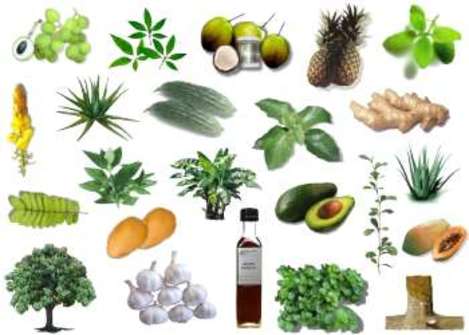The rising cost of animal drugs is one of the (livestock) farmer’s biggest problem. Compounding the situation is the remoteness of villagers to towns where they could avail of the services of animal technicians or veterinarians to provide the needed animal health care. Commercial drugs can be difficult to obtain in remote upland communities.

Medicinal plants abound throughout the country. When administered in conjunction with standard veterinary therapy, they can considerably reduce the cost of animal health care. Moreover, they can prevent unnecessary animal deaths resulting from lack of veterinary care in remote areas.
The following are some commonly used medicinal plants which are proven to be effective.
Alagaw – Premna odorata, Abgaw (Bisaya), Adiyo, Argaw (Tagalog)
A decoction of 8-15 leaves and 2-3 glasses of water given as drench (1/2 to 1 cup, 3 times a day for 3 days) is effective against fever, cough and colds.
The extract of fresh leaves is internally used against ringworm and externally against ticks, lice, fleas and to clean wounds.
Ampalaya – Momordica charantia Paliya (Bisaya)
Bitter Gourd (English), Paria, Piliya (Tagalog)
The juice extract from 1/2 to 1 kg of the leaves is orally given to the animal as dewormer.
Given to one-day-old piglets, it prevents piglet anemia.
Bayabas – Psidium guajava Guava (English)
A decoction of 12 leaves and 2 glasses of water is given as drench for diarrhea (1 to 2 glasses, 3 times a day for 1 to 2 days).
A poultice of pounded leaves is applied to skin diseases; infested wounds and castration wounds and is also used to stop bleeding.
Bunga – Areca catechu Betelnut (English)
Young betelnuts are used as dewormer, especially against tapeworm and roundworm. They are pounded, added with water and fed to the animal once. – The dosage for chicken is a piece as big as a peanut, 1-3 nuts for goats and pigs and 8-10 nuts for cattle/carabao.
Caimito – Chrysophyllum cainito L. Starapple (English)
Decoction of 1/2 kg of caimito leaves and 3 glasses of water is given as drench (1 cup, 3 times a day for 1 to 3 days) for fever and diarrhea in animals.
Kakawate – Gliricidia sepium Madre de Kakaw (Tagalog, Bisaya)
Leaves are pounded, the extracted juice is externally applied on the affected area to cure skin diseases, wounds and to get rid of external parasites like lice, ticks and fleas.
Lagundi – Vitex negundo Five-leaves chaste tree (English)
Decoction of 112 kg leaves and 2 liters of water is given as drench (3 liters a day, 2 times a day for 1 to 3 days) is effective to treat fever, flu and cough.
The juice extracted from the leaves is used as dewormer (1 to 2 kg of leaves) and to treat Newcastle Disease in poultry.
Lantana – Lantana camara L. Baho-baho (Bisayas), Kantutal (Tagalog)
A decoction of 200 9 leaves and flowers and 1 liter of water, given three times a day, is used to reduce fever and to cure cough and colds.
A poultice of pounded fresh leaves is applied for sprains, fractures and rheumatism.
Malunggay – Moringa oleifera Lam. Horseradish tree, drumstick tree (English)
An orally given extract of 1/2 to 1 kg leaves prevents piglet anemia if given to one-dayold piglets.
The extracted juice is also effective extemally to cure wounds and internally as dewormer.
Young leaves fed to lactating sow or cow stimulates milk flow.
Niyog – Cocos nucifera Lubi (Bisaya), Coconut (English)
Water of the young coconut (3 to 5 coconuts) together with 1 cup of sugar and some salt is given to animals with diarrhea.
For bioat, constipation and as dewormer the juice/oil from meat of the mature coconut (200 to 350 ml. 2 times a day for 2 days) is mixed with the feed of the animal.
Saging – Musa sapientum Banana
Clean, chopped banana leaves (var. saba) are fed ad libitum to animals suffering from diarrhea.
To treat open wounds, e.g, to stop bleeding after castration, clean steamed banana leaves (all varieties) are applied next to the lesions.
Sambong – Blumea balsamifera Alibum, Ayoban, Lakadbulan (Bisaya), Ngai camphor (English)
Decoction of 10 leaves and 1 liter of water is given as drench against fever, colds, cough, running nose and diarrhea (2 times a day 1/2 to 1 liter for 1 to 3 days)
Notes:
* If no specific animal species is mentioned, the remedy can be used for all livestock.
* To prepare a decoction, the plant materials are boiled in water for 15-20 minutes or until the water is reduced to half its original volume. Allow to cool and strain.
* If symptoms persist, a veterinarian should be consulted.
Source: nzdl.org
